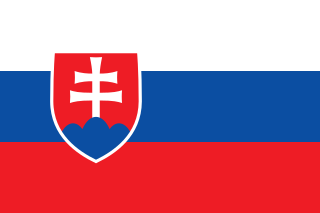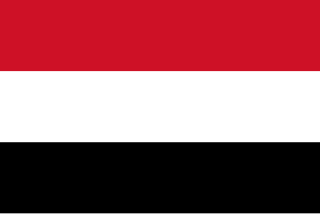Related Research Articles

Political corruption is the use of powers by government officials or their network contacts for illegitimate private gain.
Transparency International e.V. (TI) is a German registered association founded in 1993 by former employees of the World Bank. Based in Berlin, its nonprofit and non-governmental purpose is to take action to combat global corruption with civil societal anti-corruption measures and to prevent criminal activities arising from corruption. Its most notable publications include the Global Corruption Barometer and the Corruption Perceptions Index. Transparency International serves as an umbrella organization. From 1993 till today its members have grown from a few individuals to more than 100 national chapters which engage in fighting perceived corruption in their home countries. TI is a member of G20 Think Tanks, UNESCO Consultative Status, United Nations Global Compact, Sustainable Development Solutions Network and shares the goals of peace, justice, strong institutions and partnerships of the United Nations Sustainable Development Group (UNSDG). TI is a social partner of Global Alliance in Management Education. TI confirmed the dis-accreditation of the national chapter of United States of America in 2017.

Corruption in Armenia has decreased significantly in modern times, but remains an ongoing problem in the country. Despite this, fighting corruption following the 2018 Armenian revolution has recorded significant progress. Armenia is a member of the Council of Europe's Group of States Against Corruption (GRECO) and the OECD's Anti-Corruption Network and Armenia's anti-corruption measures are regularly evaluated within their monitoring mechanisms.

Corruption is perceived as a significant problem in Russia, impacting various aspects of life, including the economy, business, public administration, law enforcement, healthcare, and education. The phenomenon of corruption is strongly established in the historical model of public governance, and attributed to general weakness of rule of law in the country. Transparency International stated in 2022, "Corruption is endemic in Russia" and assigned it the lowest score of any European country in their Corruption Perceptions Index for 2021. It has, under the regime of Vladimir Putin, been variously characterized as a kleptocracy, an oligarchy, and a plutocracy; owing to its crony capitalism economic system.

The Philippines suffers from widespread corruption, which developed during the Spanish colonial period. According to GAN Integrity's Philippines Corruption Report updated May 2020, the Philippines suffers from many incidents of corruption and crime in many aspects of civic life and in various sectors. Such corruption risks are rampant throughout the state's judicial system, police service, public services, land administration, and natural resources. Examples of corruption in the Philippines include graft, bribery, favouritism, nepotism, impunity, embezzlement, extortion, racketeering, fraud, tax evasion, lack of transparency, lack of sufficient enforcement of laws and government policies, and consistent lack of support for human rights.

The nation of Botswana has been ranked as one of the least corrupt countries in Africa by many large, well-known international organizations. However, corruption is not eradicated, and can still be seen in a wide majority of different governmental sectors and in differing forms. To combat this corruption, Botswana has passed many legal acts and policies with the aim of stopping its growth.

Corruption in Somalia pertains to purported levels of corruption within Somalia's public and private sectors according to official metrics, anti-graft measures aimed at addressing those issues, as well as political dispensations and structural changes in government affecting transparency. Owing to a reported lack of accountability in the receipt and expenditure of public funds by the Transitional Federal Government, a federal Anti-Corruption Commission was put into place in 2011 so as to deter and eliminate graft. Somalia, along with Syria, ranked next-to-last, scoring 13 on the CPI on a scale from 0 to 100 in Transparency International's 2021 Corruption Perceptions Index, which measures the perception of public sector corruption of 180 countries around the world.

Corruption in Turkey is an issue affecting the accession of Turkey to the European Union. Transparency International's Corruption Perception Index scores 180 countries according to their perceived level of public sector corruption on a scale of 0 to 100. Since the current scale was introduced in 2012, Turkey's score has fallen from its highest score of 50 (2013) to its lowest, current score of 38 (2021). When the 180 countries in the Index were ranked by their score, Turkey ranked 96 in 2021.

Examples of areas where Cambodians encounter corrupt practices in their everyday lives include obtaining medical services, dealing with alleged traffic violations, and pursuing fair court verdicts. Companies are urged to be aware when dealing with extensive red tape when obtaining licenses and permits, especially construction related permits, and that the demand for and supply of bribes are commonplace in this process. The 2010 Anti-Corruption Law provides no protection to whistleblowers, and whistleblowers can be jailed for up to 6 months if they report corruption that cannot be proven.

Corruption in Romania has decreased in recent years. In particular since 2014, Romania undertook a significant anti-corruption effort that included the investigation and prosecution of medium- and high-level political, judicial and administrative officials by the National Anticorruption Directorate. The National Anticorruption Directorate was established in 2002 by the Romanian government to investigate and prosecute medium and high-level corruption related offenses, using a model of organization inspired by similar structures in Norway, Belgium and Spain. Adrian Zuckerman, the US Ambassador in Romania, has stated in 2021 that "the rule of law has been strengthened in Romania". Since 2022, the effectiveness of the investigation and sanctioning of high-level corruption further improved, including by advancing on cases that had been pending for years for procedural reasons.

Corruption in Slovakia is a serious and ongoing problem.

Corruption in Georgia had been an issue in the post-Soviet decades. Before the 2003 Rose Revolution, according to Foreign Policy, Georgia was among the most corrupt nations in Eurasia. The level of corruption abated dramatically, however, after the revolution. In 2010, Transparency International (TI) said that Georgia was "the best corruption-buster in the world." Low-level corruption has been virtually eliminated in recent years. Transparency International's 2021 Corruption Perceptions Index ranks the country in 45th place out of 180 countries, on a scale where the lowest-ranked countries are perceived to have the most honest public sector.

Since independence, corruption has been more than prevalent in Cameroon. In fact, corruption has become pervasive and has affected all sectors of the government and civil society including the executive, judiciary, police, and even the private sector. The main causes being a deep lack of political will to fight corruption and neopatrimonialism. Other causes include; personal interests and absence of duty conscience, weak judiciary and almost nonexistent opposition in the legislative, nepotism and favouritism, ineffective system of accountability, among others.

Corruption in Bolivia is a major problem that has been called an accepted part of life in the country. It can be found at all levels of Bolivian society. Citizens of the country perceive the judiciary, police and public administration generally as the country's most corrupt. Corruption is also widespread among officials who are supposed to control the illegal drug trade and among those working in and with extractive industries.

Corruption in Ecuador is a serious problem. In 2014, the U.S. Department of State cited Ecuador's corruption as a key human-rights problem. According to Freedom House, "Ecuador has long been racked by corruption", and the weak judicial oversight and investigative resources perpetuate a culture of impunity.

Corruption in Yemen is a highly serious problem. Yemen is the most corrupt country in the Gulf region. It is also the poorest country in the Middle East, "with an exceptionally high birth rate, acute rates of child malnutrition and rapidly dwindling reserves of oil and water." In Yemen, according to Chatham House, "corruption, poverty and inequality are systemic"; in the words of the Carnegie Endowment for International Peace, corrupt activity is "so entrenched and pervasive" that many citizens feel powerless.

Corruption in Azerbaijan is considered high and occurs at all levels of government. In Transparency International's 2021 Corruption Perceptions Index, which ranked 180 countries from those perceived to be least corrupt to those perceived to be very corrupt, Azerbaijan was ranked 128, compared to 45 for Georgia and 58 for Armenia. In the Azerbaijani laundromat money-laundering scheme, $2.9 billion was paid to foreign politicians and Azerbaijani elites by companies linked to Azerbaijani ruler Ilham Aliyev, government ministries, and the International Bank of Azerbaijan between 2012 and 2014. Azerbaijan is a member of Group of States Against Corruption (GRECO) and OECD's Anti-Corruption Network.
Anti-corruption comprises activities that oppose or inhibit corruption. Just as corruption takes many forms, anti-corruption efforts vary in scope and in strategy. A general distinction between preventive and reactive measures is sometimes drawn. In such framework, investigative authorities and their attempts to unveil corrupt practices would be considered reactive, while education on the negative impact of corruption, or firm-internal compliance programs are classified as the former.
Bad governance is the relationship between those who govern and those who are governed as a consequence of decision-making. This unfavourable relationship is created as a consequence of external factors or decisions such as violation of central or acceptable norms, such as those of liberal democracy, and bad economic policy:. Bad governance collectively encompasses governance in government and corporate settings. It is the opposite of good governance. Bad governance addresses governance in a government setting but bad governance and bad government are different concepts. Bad governance encompasses a variety of situations from corruption, deceit and to passing of unfair policy. From this, it can be noted that different manifestations of bad governance can vary in severity and the potential impact in their respective setting. The World Bank has identified key indicators of governance which are used as a method to measure bad governance.
Maritime anti-corruption initiatives have emerged in the last decade as a response to the growing threat of transnational corruption in the maritime domain, specifically the shipping industry. While historically, national authorities would handle corruption domestically, the increasingly international nature of shipping and corruption have led to private and public actors engaging in collective initiatives, typically manifesting through the work of the Maritime Anti-Corruption Network.